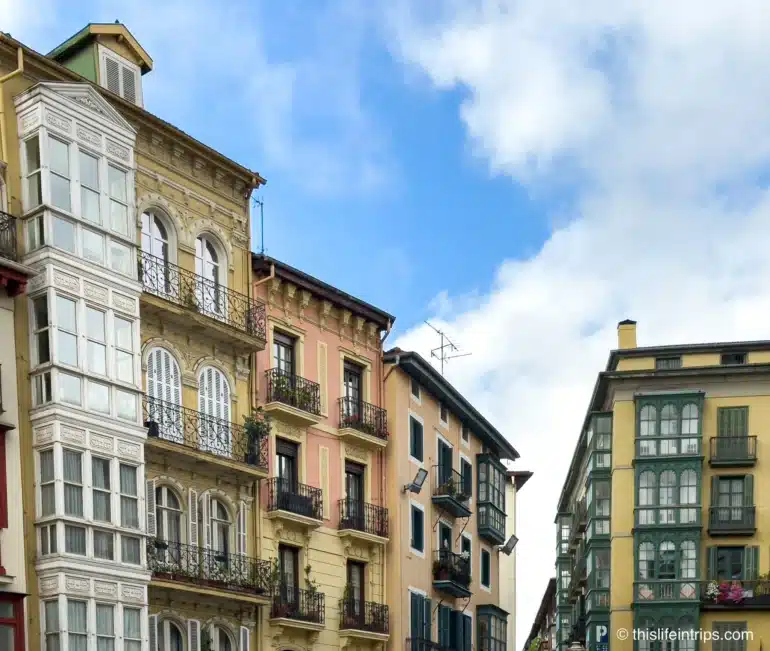“Tourism is killing Barcelona,” “tourists are worse than occupiers,” and “tourists, stay home” – these are the posters and graffiti you see on the streets of popular Spanish cities today. Despite travelers accounting for approximately 12% of Spain’s GDP, locals are increasingly resentful of their homeland’s growing appeal to foreigners.
It’s hard not to be amazed by Spain, the mix of golden beaches, rugged mountains, and streets full of history hits you the moment you arrive. People flock here for all sorts of reasons: some come for the food and culture, others to place bets here as a fun, modern twist on entertainment. Surfing, hiking, nightlife—there’s something for everyone, and the architecture alone can keep you wandering for hours, camera in hand.
Usually, you’d think this would place Spain at the very top of anyone’s travel list, and it still does – but lately, locals have been making it clear they’re not entirely thrilled about the constant influx of tourists. Walk through central Barcelona, and you’ll see why: streets overflowing, restaurants packed, and a few grumbles from shop owners who’ve had enough.
How it All Began: The Rise of the Destination’s Popularity
For the first half of the 20th century, the country was isolated even from its European neighbors. Dictatorship and civil war made tourism nearly impossible: it wasn’t even a focus. Spain’s European modernization began with tourism – the government launched a massive advertising campaign for the Costa Brava, Costa del Sol, Balearic Islands, and Canary Islands. And it really showed by the late ’70s, when tourists suddenly seemed everywhere.
The new millennium brought dramatic development to the country’s infrastructure: accessible transportation, walkable streets, and European investment made tourism a central part of Spain. The first warning signs weren’t hard to spot. The beaches weren’t the same anymore. Hotels had crept in, and cafés felt full of tourists instead of locals. Even quiet streets were starting to buzz with visitors. Every day life felt a little tighter, a little louder.
By the 2010s, Barcelona was packed. Cheap flights and buses brought people from all over. The streets were full, cafés had long lines, and public beaches were slowly disappearing under short-term rentals. Residents looked frustrated. Quick glances, small sighs, people hurrying past each other – it was hard to walk without bumping into someone.
Then COVID-19 hit. The city went silent. Streets emptied. Restaurants closed. For the first time in decades, locals felt calm. The absence of tourists was strange but also oddly peaceful. It was unsettling – and, for some, a little bittersweet. And the Spanish responded – the first mass protests began in 2023 and haven’t stopped since. This prompted the government to introduce restrictions and additional taxes.
Economic Growth vs. the Discomfort of Spaniards: What Causes the Protests
The dilemma of today’s Spain is its economic model. On the one hand, tourism is the primary driver of the local economy. On the other hand, there’s the discomfort of locals. Here’s what worries Spaniards most:
- Unaffordable housing. Landlords were starting to notice a change. Short-term rentals for tourists made more money than long-term leases for locals. Choices for people who actually lived in the city were shrinking. Even then, they often had to compete with newcomers from across Europe – remote workers looking for a few months in the sun and willing to pay top prices.
- Strain on infrastructure. Congested streets and transport, endless traffic jams, a noisy nightlife – these conditions are incompatible with a comfortable daily life. The stereotype of “dirty Barcelona” also stems from this – utility workers simply can’t clean streets that are overcrowded 24/7.
- Psychological pressure. The country’s actions led to the locals not feeling like a priority in their homeland. Spain has always been culturally diverse, but when tourists outnumber residents, it raises concerns.
The focus on tourism is a problem in modern Spain. Cafés, hotels, and restaurants mostly focus on visitors. Locals often feel left out. Life can be harder for them – finding housing, moving around the city, or just enjoying everyday routines.
First Steps to Address the Issue: What the Authorities are Doing
Fortunately, the residents’ discontent was heard by the government. The protests benefited society, and today local authorities have taken several decisive steps to restore balance and improve citizens’ well-being:
- Tourist audit. Royal Decree 933/2021 of December 2, 2024, requires hotels, agencies, and accommodation and car rental booking services to collect user data and share it with the government. This is done to monitor crime rates and tourist flow and combat illegal rentals.
- National Registry of Short-Term Rentals. The new mechanism was introduced in early 2025: the registry contains information on all properties, allowing for audits based on this data. This enables the government to analyze and monitor the entire real estate market.
- Spain Tourism Strategy 2030. This includes more than 50 measures aimed at restoring balance, prioritizing residents, and focusing on sustainable tourism. The goal is to develop less popular destinations and shed the status of “weekend getaway destination.”
Many locals think these measures don’t go far enough. Still, many other locals feel the measures are too harsh. New rules for tourists could drive some away and make it harder for local shops and cafés.
Spain 2025: Travel Tips
Spain is still open to visitors. Some areas are very crowded, but quieter towns and northern regions offer more space and calm. The key is to stay flexible. A quick trip to Valencia, Barcelona, or the Canary Islands can feel crowded and noisy. It’s hard to really relax. Up north, it’s different. Small towns, quiet streets, mountains, and the ocean make the pace slower. You can walk around, take in the view, and move at your own speed instead of rushing from one place to another.
What say you?
Thoughts on the Spanish Tourism Crisis?
Let’s hear it!








